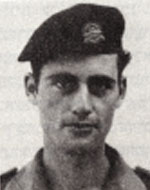Avner, son of Miriam and Moshe, was born on March 1, 1943 in Kibbutz Gvat. He began his elementary studies in the kibbutz, but in 1954, during the split of the United Kibbutz Movement, his family relocated and settled in Yifat. Where he went on to finish elementary school. After graduating from high school in the sixth grade, he moved to Beit Berl, where he graduated from high school, Avner was a delicate and shy child, never tried to stand out from the center of society, but always participated in the pranks of He was an honest boy with a pleasant temperament, intelligent, responsible and authoritative in his company, and in 1961-1962 he served as a youth counselor in the youth brigade, Avner was drafted into the IDF in early November 1962 and assigned to the Armored Corps. After completing several courses, he became a tank gunner. After a while he took another course and became a tank commander. In 1964 he was sent to a basic officer’s course, and at the end of that year he completed an officer’s training course and became commander of the tank division. In 1965, a lieutenant was appointed. This was the year his regular service ended, but at the same time the tension on the borders grew and Avner volunteered to serve another period in the army. In August 1965, he participated in an operational operation in the Almagor incident and was wounded by the last shell fired by the Syrians in this incident. At the end of 1965 he was released from regular service and returned to his farm. During the same period, the poultry industry suffered from a severe shortage of workers, and Avner was asked to work in the industry. Although he had no inclination or interest in this industry, he agreed. When the Six-Day War broke out, he was drafted and fought with his unit. At first he fought on the Jordanian front, took part in the battle for Jenin, and arrived with his unit up to Damia Bridge. After that his battalion moved to the Golan Heights, where he fought the Syrians. In the years 1970-1968, he studied at a high school for agriculture in Rehovot and studied in the poultry industry. He completed this course cum laude and as a follower, he set out on a study tour in Turkey and a prize to learn about new and innovative methods in the chicken coop industry in these countries. From time to time he went on reserve duty and one of them, in 1972, went on to become an armored company commander, and in that year he married and set up a home, and a year later his first daughter was born and a year later his son was born. When the Yom Kippur War broke out and immediately joined his unit in the north, he took part in fierce and bloody battles and a week later, after the battalion commander, his deputy and company commander were killed, Avner assumed command. He put his unit into a routine, while his main concern was to protect the lives and safety of his men. Sent a team of his men for some mission, followed the movement of the tank with binoculars, and when it seemed to him that the crew was over-risking, he ordered him to return.Not on October 22, 1973, Avner went to an observation post in the vicinity of Rafid Junction, A missile fired from the Syrian positions hit his tank and he was killed, Avner was brought to eternal rest in the Kibbutz Yifat cemetery and left behind a wife, son and daughter, parents, brother and two sisters. The outbreak of war. In a letter of condolence to the bereaved family, the commander of his unit wrote: “The commanders and soldiers of the unit hurt Abner in the course of his duty to fight the enemy, and Avner was appointed commander of a company during the fighting. Calm and noble and deeply responsible for his role and devotion to me”His family and his kibbutz published a pamphlet in his memory and his words, and things about his character, written by family members, friends and friends.
